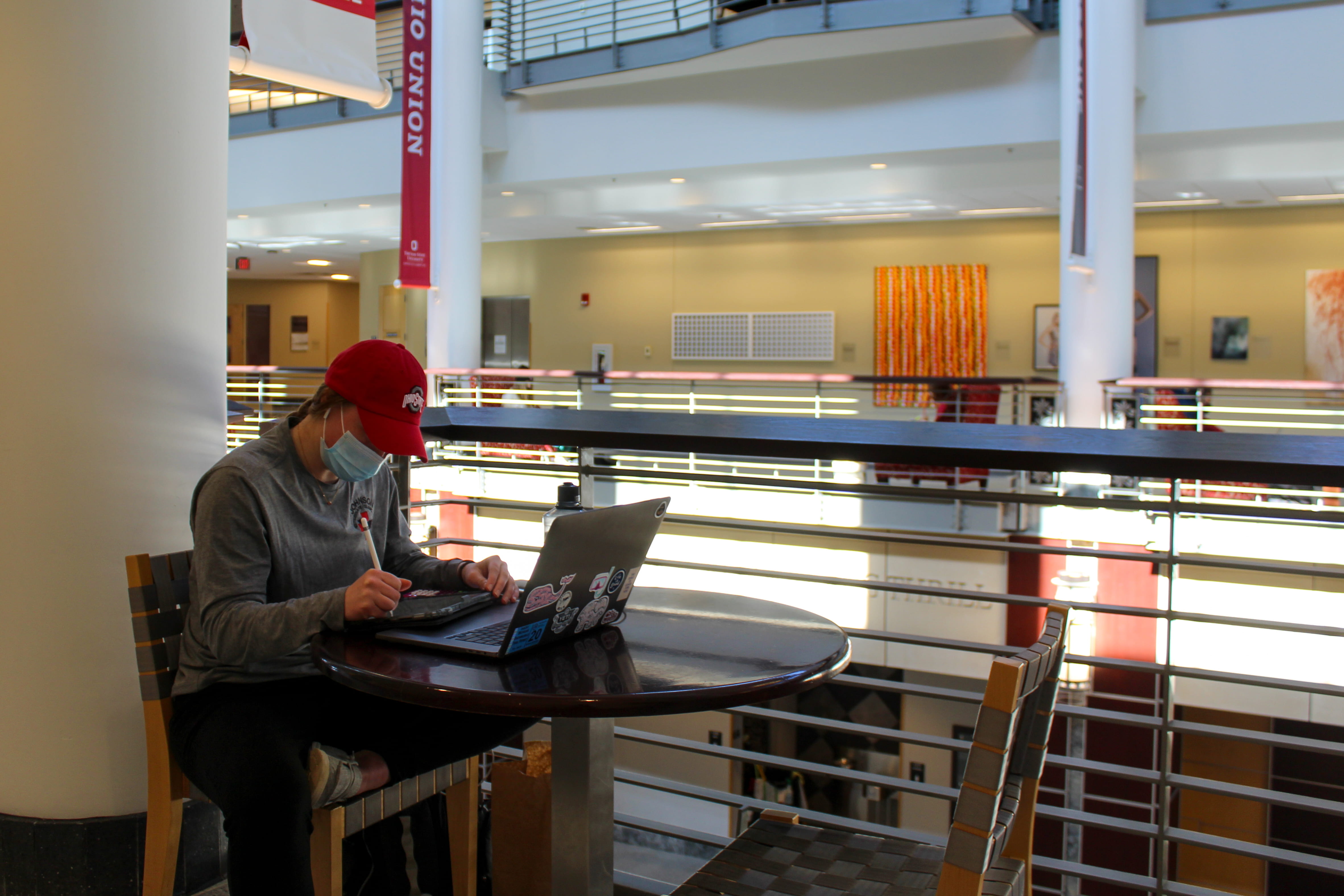
With final exams quickly approaching, students may find themselves experiencing burnout and should be mindful of certain symptoms that can be linked. Credit: Ashley Grimmer | Lantern File Photo
With final exams quickly approaching, students glued to textbooks and computer screens in hopes of achieving good grades before heading home for winter break may find themselves experiencing burnout.
Students should be mindful of certain symptoms that can be linked to burnout — including a lack of engagement and concentration while in class, heightened emotional responses, loss of confidence or motivation, exhaustion despite getting enough sleep and a suppressed immune system, Kelsey Varzeas, a second-year in the higher education and student affairs program and academic coach in the learning center, said in an email.
“Once students become aware of their symptoms of burnout, they can begin to utilize strategies that will support them in navigating their experiences,” Varzeas said.
Lauren Hensley, senior associate director of the Dennis Learning Center, said high rates of burnout may be due to students’ increased struggles with mental health.
“If students are neglecting their mental health and sort of just pushing it aside in order to keep on working, it’s actually going to make that work even harder,” Hensley said. “It can be harder to learn when your mood and emotions are in a difficult place.”
Varzeas and Hensley said they recommend students try the Pomodoro technique — a time management technique that utilizes a timer to break work into intervals.
“You get rid of all distractions, you just focus on that one small manageable piece and when it’s done you truly allow yourself to take a break and to enjoy that break,” Hensley said.
Hensley said students can try to use a different form of energy when taking a break in order to feel refreshed.
“If you’re taking in a lot of content because you are studying or reading, you don’t necessarily want your break to be something where you’re just scrolling through social media and taking in more content,” Hensley said. “Instead, you want to make a quick phone call or chat with your roommates, or just something that uses a different aspect of your energy so that when you come back, you feel refreshed.”
Varzeas said she also suggests time management systems, being accountable to peers, setting realistic goals, and practicing self-validation and compassion.
“Some students may feel extra burdens surrounding financial stressors, health of self and loved ones, or the unexpectedness of COVID itself,” Varzeas said. “If students are feeling extra stress surrounding this, I want to normalize this. Sometimes allowing ourselves self-validation regarding the extra burden of COVID might be helpful in and of itself.”
Resources are available at The Dennis Learning Center, Counseling and Consultation Services and the Student Wellness Center.


